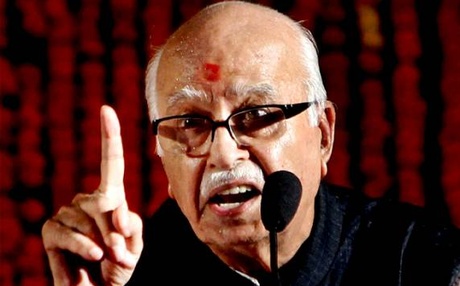Indian politics is too complex and full of paradoxes to reduce to an objective-type, yes/no Q&A session to understand its nuances, as is being done by media these days
“I have never made a fetish of consistency. I am a votary of Truth and I must say what I feel and think at a given moment on the question, without regard to what I may have said before on it.… As my vision gets clearer, my views must grow clearer with daily practice. Where I have deliberately altered an opinion, the change should be obvious; only, a careful eye would notice a gradual and imperceptible evolution.” – Mahatma Gandhi.
Perhaps Mahatma Gandhi would have been subjected to severe scrutiny in TV studios and social media for this perceived “indiscretion”. In an age of twitter and sound bite, where political discourses are summed up in 140 characters, this smart statement would have been blown to smithereens. Anchors would have torn apart Gandhi for treading in grey areas without committing himself in black and white.
Having done the job of a reporter on Indian politics for nearly three decades, I am amused to look at the manner in which political discourse in the country is being conducted these days. If a politician is hauled over coals for his inconsistencies, the truth about the evolution of life through contradictions is often lost sight of. And Indian politics is full of these paradoxes and contradictions.
A recount of the brief political history would be in order to understand the phenomena of political debates in TV studios, and even in print. For Instance, India’s first prime minister, Jawaharlal Nehru, was firm on banning the RSS and refused to recognise its nationalist credentials after the assassination of Mahatma Gandhi. But soon after the humiliating defeat in the India-China war of 1962, a much mellowed Nehru allowed the RSS to participate in the Republic Day parade. Does that dilute Pandit Nehru’s secular credentials?
Indira Gandhi emerged as the most authoritarian ruler that the country has ever witnessed. She suppressed dissent with ruthless efficacy and imposed Emergency to terminate the fundamental rights of citizens. But Indira Gandhi lifted Emergency and ensured a fair election which saw her exit. She returned to power after the Janata Party’s failed experiment. Does that make her a true democrat?
Rajiv Gandhi rode the wave of people’s sympathy for a certain Mr Clean determined to clean the Augean stable dirtied by courtiers of his mother. His demenaour and personality stood in contrast to a group of old Congressmen who surrounded Indira Gandhi. People found an instant resonance of sincerity and innocence in his voice shorn of rhetoric. But three years later, he got himself embroiled in the Bofors payoff case. His image has not been resurrected till date, though the Bofors case stands closed. Was he Mr Clean or Mr Corrupt?
In his tenure as the UP chief minister, VP Singh came to be recognised as anti-OBC for launching a ruthless operation in Chambal ravines to eliminate bandits, belonging mostly to the backward castes. Mulayam Singh Yadav was then a staunch opponent. In 1989, Singh rediscovered himself as champion of the OBCs by implementing the Mandal commission report, and Mulayam came on board as an ally. Singh advocated the cause of social justice till he breathed his last. Was he a real proponent of social justice?
These are some of the endless political conundrums which need elaboration and deep understanding of the social context of the time. But what will you do if the discourse is reduced to an objective-type questioning of yes/no for an answer?
If LK Advani was accused of leading the mob to destroy the mosque at Ayodhya, why did he praise Mohammad Ali Jinnah in Pakistan? Is he an opportunist? It is indeed difficult to decipher Advani’s politics through research and elaboration and more easy to find an answer in yes/no terms.
There is little doubt that the quick-fix understanding of politics has created an atmosphere of despondency and cynicism in the society. But the medium through which this atmosphere emanates is unlikely to insulate itself from the concomitant damage.

